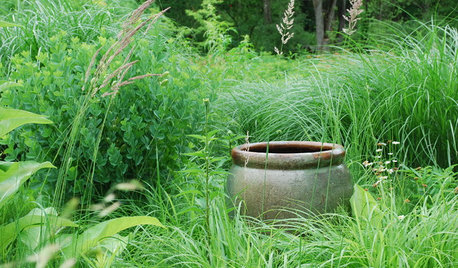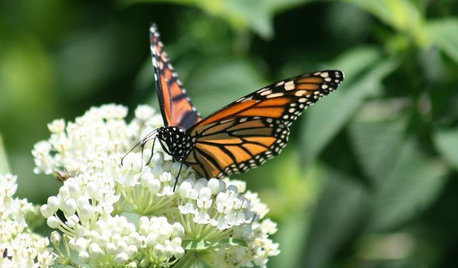Help! Moles!
ejm135
11 years ago
Related Stories

COLOR4 Cool Paint Colors Touted for 2014 — and How to Use Them
Muted but complex, these hues from Farrow & Ball can stand on their own or play supporting roles
Full Story
EXTERIOR COLORExterior Color of the Week: Tasteful Taupe
When you want to skip the peachy beiges and ubiquitous creams, consider this rich cool brown neutral instead
Full Story
DECORATING GUIDESHouzz Tour: A Family Home Comes Together, One Piece at a Time
A decorator uses her expert eye to outfit her family’s home with finds from thrift stores, online resale sites and yard sales
Full Story
SAVING WATERHouzz Call: Are You Letting Go of Your Lawn?
Many facing a drought are swapping turf for less thirsty plantings. If you’re one of them, we’d like to hear about it
Full Story
FARM YOUR YARDHow to Build a Raised Bed for Your Veggies and Plants
Whether you’re farming your parking strip or beautifying your backyard, a planting box you make yourself can come in mighty handy
Full Story
LANDSCAPE DESIGNGet an Edge: The Best Border Material for Your Garden
Do you want garden edging made of stone, concrete, metal or wood? Here are things to consider when choosing
Full Story
GARDENING GUIDES5 Invaluable Life Lessons From the Garden
The garden is both teacher and healer. Don't be afraid — dig in and reap the benefits
Full Story
GARDENING GUIDESGreat Design Plant: Carex Sprengelii
Fit for nearly any site, Sprengel’s sedge makes for a low-care, healthy garden
Full Story
GARDENING FOR BUTTERFLIESBe a Butterfly Savior — Garden for the Monarchs
Keep hope, beauty and kindness alive in the landscape by providing a refuge for these threatened enchanters
Full Story
EDIBLE GARDENSHow to Grow Your Own Sweet Summer Crops
This guide will help any gardener get started on growing the freshest warm-season veggies and berries for summer
Full Story





slowpoke_gardener
Okiedawn OK Zone 7
Related Professionals
Cottonwood Landscape Architects & Landscape Designers · Roxbury Crossing Landscape Architects & Landscape Designers · Elmhurst Landscape Contractors · Fountain Valley Landscape Contractors · Lady Lake Landscape Contractors · Lakeville Landscape Contractors · Midland Landscape Contractors · Oak Forest Landscape Contractors · South Portland Landscape Contractors · Shenandoah Landscape Contractors · Hueytown Landscape Contractors · Elkridge Decks, Patios & Outdoor Enclosures · Fort Worth Decks, Patios & Outdoor Enclosures · Sun Lakes Decks, Patios & Outdoor Enclosures · Santa Monica Decks, Patios & Outdoor Enclosureshelenh
ejm135Original Author
Okiedawn OK Zone 7
ejm135Original Author